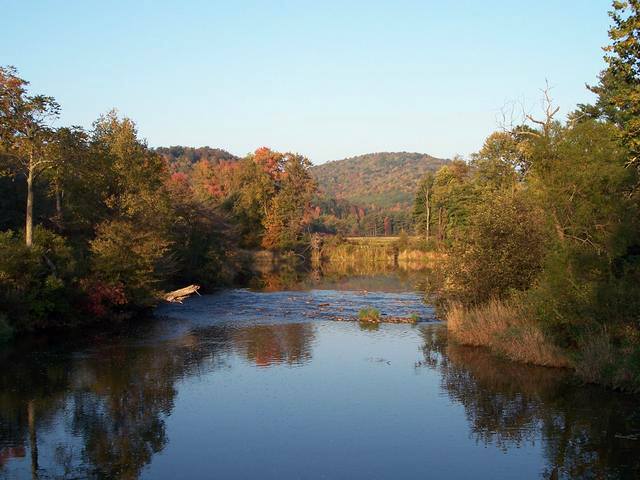Please sign this petition calling on Pennsylvania's Governor Josh Shapiro to take action to protect the environment and the health and safety of the residents of Cyclone by directing the Department of Environmental Protection (DEP) to REVOKE the Catalyst Energy, Inc. UIC Class II Disposal Well permit.
Petition link here
The Pennsylvania Department of Environmental Protection (DEP) erred by authorizing Catalyst Energy Inc. Class II-D injection well permit API 37-083-46237 in the absence of due diligence by DEP during the permit review.
On May 10, 2023, Catalyst Energy Inc. (Catalyst, or Applicant), submitted an application to the DEP to change the use of the gas well in Cyclone ( API Permit Number 37-083-46237) from a gas well to a Class II-D commercial brine disposal injection well (Injection Well).
The DEP did not hold a public comment period, public hearing or public meeting on the Cyclone Class II D Injection well permit citing lack of public interest, instead DEP agreed to a conference. More than 60 people attended the September 26, 2023 conference which was held at the Hilltop Volunteer Fire Dept. at 4351 Rt. 646 in Cyclone.The vast majority of attendees were clearly opposed to the injection well and residents raised many concerns.
Cyclone residents believed this conference was an opportunity for public comment where their concerns surrounding this project would be heard and addressed. This was not the case, although Catalyst and DEP listened to the locals, their concerns remain unaddressed by DEP.
These include numerous, compelling concerns that were brought to DEP's attention by local residents who once worked on these very wells in Cyclone, including the recently permitted Catalyst Energy Inc. Class II-D injection well.
And it was during that conference, a local resident, Dennis Johnson, held up a large map from 1937 showing DEP officials the recorded locations of hundreds of historic wells.

Above, crop of the 1937 oil field map showing the area of the village.
This map identifies the locations of a large number of wells that are not included in any of the DEP’s databases, online oil and gas well map or the injection well application. The map recorded locations of 103 historic wells within ¼ (AOR) mile of the injection well. The whole Tide Water Oil Co map is available online here.
"They did not seem very concerned" said Jeffrey Eshbaugh, a resident of Cyclone who was in attendance. "DEP or Catalyst didn't even ask for a copy" of the map.
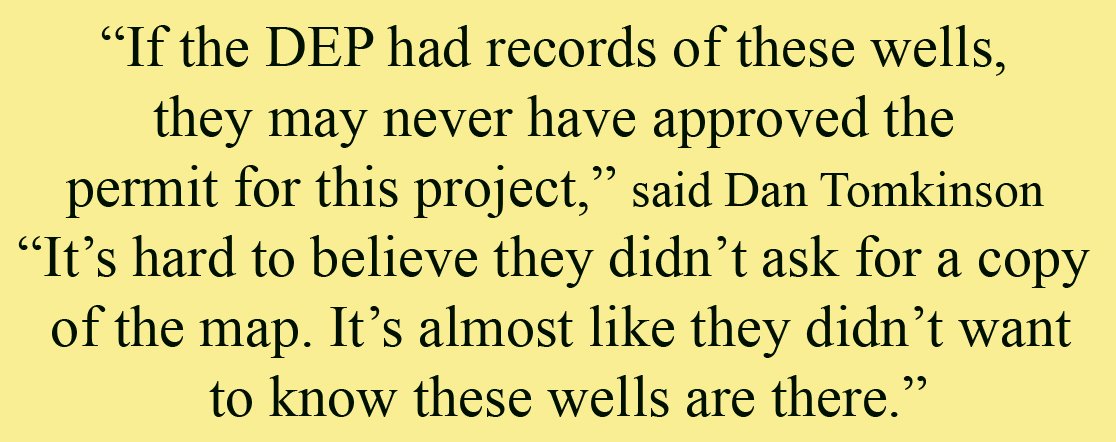
After the conference Susan Price the Geologist who attended the conference addressed one (and only one) of their concerns by requiring Catalyst to hang a notice in the post office prior to injecting waste. The DEP Lot 580-1 Record of Decision Memo is online here.
A piece of paper hanging in the post office will not minimize the risks cyclone residents brought to DEP's attention. This permit needs to be REVOKED.
The locations, depths and conditions of a large number of the old wells in and around Cyclone remain a mystery to DEP, however on January 11, 2023 the DEP authorized a Class II D injection well permit.

Above the two homes that exploded in McKean County in 2010 & 2011
The stakes are high. Abandoned wells may and often do allow natural gas and other fluids to travel from deep formations to the aquifer and to the surface. Abandoned wells in rare instances have caused explosions and deaths. More here: 'Stray Natural Gas Migration Associated with Oil and Gas Wells' here. After that report was released, two more homes in McKean County exploded. More info here & here.
Many of the area residents of Cyclone have fracked, operated and plugged the wells in the Cyclone oil and gas field over the past decades. They have direct knowledge of the condition of the wells.
According to the DEP Oil and Gas Map, many wells in the area have been plugged.
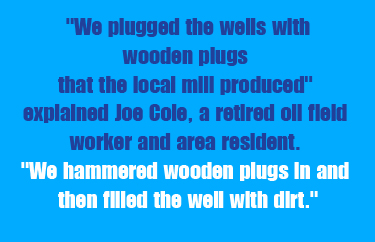
Modern regulations require placing cement in the wellbore through the water, gas and oil-producing zones. The spaces between the cement plugs are often filled (within the wellbore) with bentonite gel.
The following graphic is from page 85 of a Department of Conservation and Natural Resources (DCNR) document titled Geologic Carbon Sequestration Opportunities in Pennsylvania. Available online here.
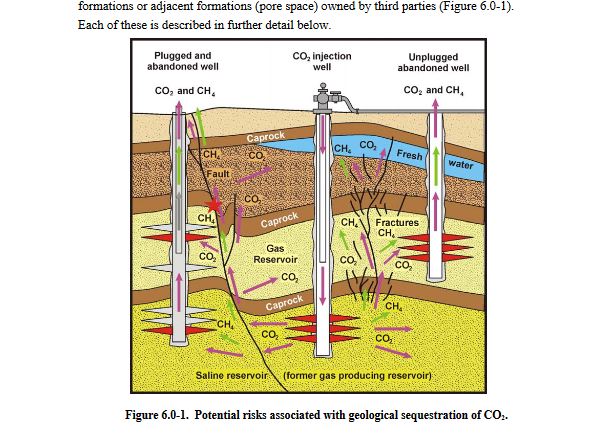
Although this graphic is intended to show the pathways and potential risks associated with geological sequestration of CO2, If the DCNR is correct and there are in fact potential pathways as illustrated in the department's graphic, it's certainly conceivable these same pathways would also be available for pressurized injected waste and explosive gasses.
The following warning is from page 86 of that DCNR document:
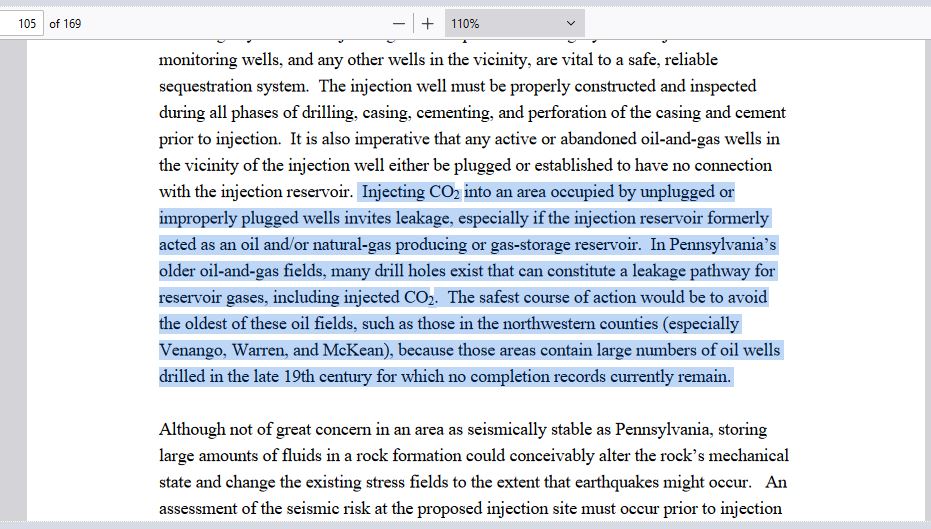
The residents of Cyclone have a constitutional right to live in a safe environment free from the very real risks posed by living in close proximity of historic wells, the condition and depths of many remain unknown to regulators.
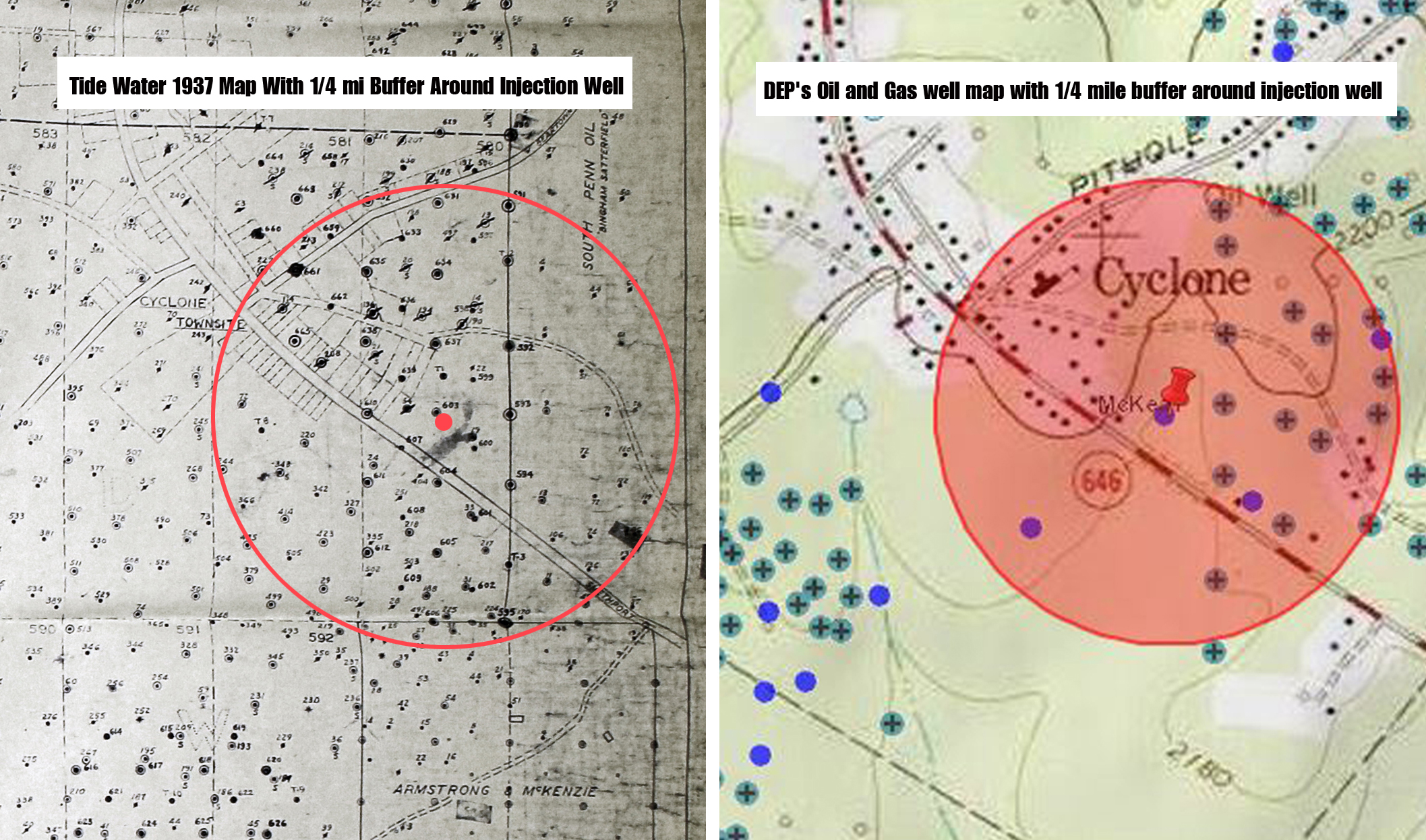
The citizens of Pennsylvania should not be forced, by their government, to live worrying if toxic chemicals known to be present in frack waste will contaminate their water supplies or migrating methane will cause their homes to explode.


